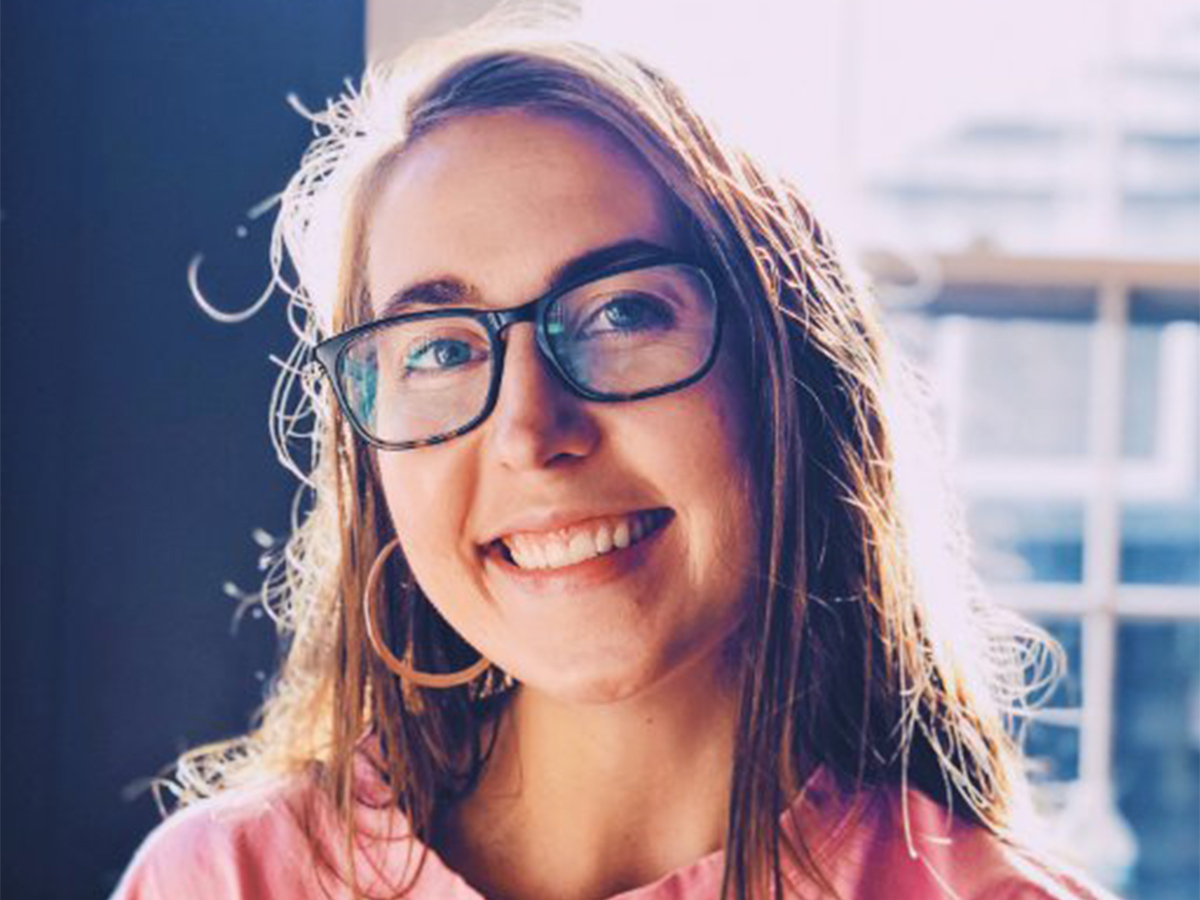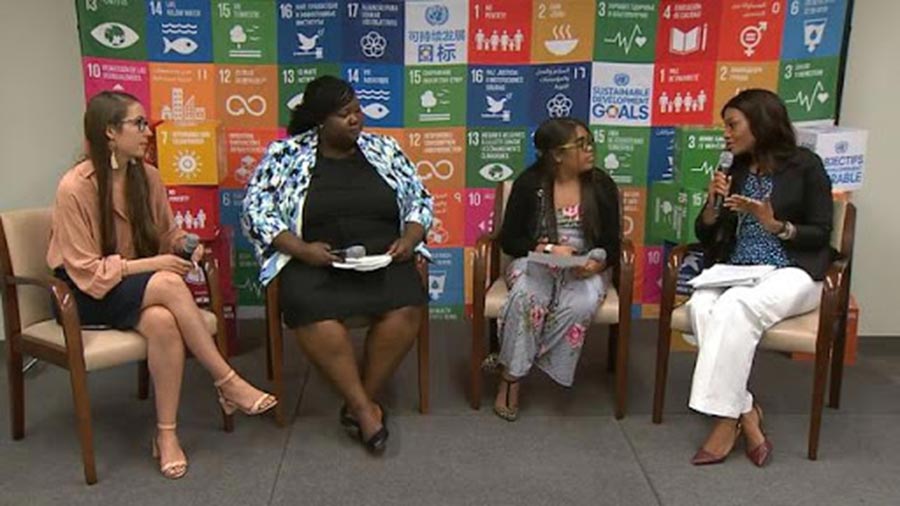#ClimateCareer Highlight: Callie King-Guffey
By KCI Ambassador Anela Arifi

1. What is your name and age and what has been your #ClimateCareer role at UNICEF
Callie King-Guffey, 28 years old. The past six+ years I’ve been working on the Sustainable Development Goals (SDGs) and making sure that child rights and voices are included in the design and delivery of the goals.
2. How did you decide to have a job related to climate change?
I came to UNICEF and the SDGs more interested in the social pillar of development but quickly learned how interconnected taking climate action and preserving the environment is to social and economic progress. As a young professional, I was passionate about bringing the voices of marginalized children and youth into SDG decision making processes and through that effort, heard the voices of children and youth around the globe demanding climate justice. Thanks to their advocacy efforts, their fight soon became our fight at UNICEF. My team advocates with UN Member States and equips governments with tools to address the climate crisis as a child rights crisis as well as encourages governments to educate and engage children and youth as key agents of change for identifying climate solutions.
3. Why do you feel it is important for more youth to seek professional roles that influence the environment and climate change-related issues?
For climate action to be successful, we need all sectors and industries to align to environmental sustainability efforts: finance, fashion, technology, politics, agriculture, the arts — every job could be a green job if employers and employees intentionally integrated climate goals in each job description. As more environmentally conscious citizens and consumers, young people are already helping bring about such transformation across industries, ranking socially and environmentally responsible companies as the most attractive employment opportunities. Should more and more industries and entities increasingly recognize that retaining talent requires ambitious, internal climate action, young professionals will be pivotal in bringing wide-scale change. Plus, seeking employment that aligns with your values will give you purpose as a professional. I recommend it.

4. Did you notice instances where your role influenced other youth in terms of educating them about climate change or inspiring them to action (e.g. taking a part in the SDG Activate Talks, realizing how important public speaking is in the climate change conversations and seeing what you do with UNICEF inspired me to minor in international development alongside my environmental science major and take a public speaking class)?
My favorite part of my job over the past few years has been working directly with young people on social, environmental and economic justice issues and then witnessing the great things they go on to accomplish. One memory I have is giving a colleagues’ son one of our Comics Uniting Nations books about ocean pollution and then getting a message from her while they’re on vacation that he’s busy cleaning the beaches. Another example is a young girl who spoke at our Earth Day SDG Activate Talk at the UN and talked about how she invented a device to detect lead in water after she learned about the Flint Michigan water crisis. Afterwards she read a UNICEF report and decided to develop a mobile app which Microsoft invested in and just soft-launched. These driven young people give me hope.
5. I read your 2017 article “Climate Comic Contest at Rikers Island: Leave no child behind”. Given that climate change is an equity issue, what do you think are the best ways to make climate change alleviation initiatives and activities towards achieving SDGs more equitable and accessible?
Climate action must be more equitable and accessible. I think the first step is including those most impacted by climate change in the design of solutions, policies, campaigns. I recently heard a speaker at the UN quote an African Proverb: “Those closest to the fire can tell you how it burns.” Treat the people closest to the flames of climate change as experts of their experiences. I also think that education and the arts are important to reaching more people with the messages and inspiration for climate action. Reaching people who don’t already know or care or believe in climate change is vital and requires creativity. This is one of the reasons why I appreciate the Comics Uniting Nations project, it has helped get comic enthusiasts interested in the issue. I hope to see more and more art inspiring climate action because if climate change is an issue that the average person thinks only the scientific community and politicians are concerned with, then change will not go far enough.
